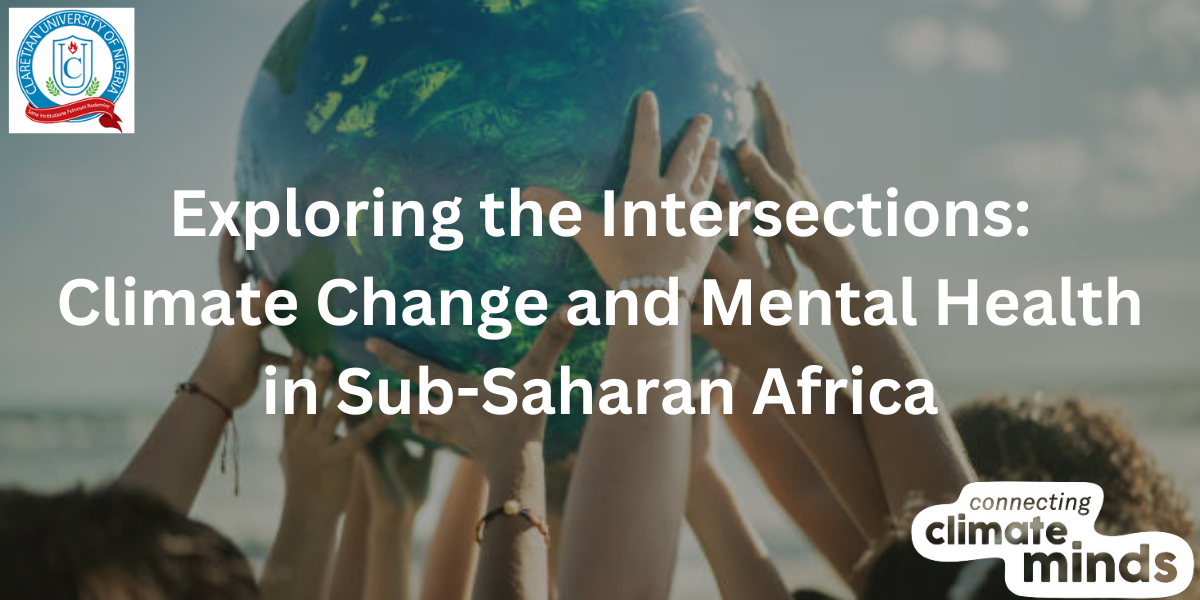Climate change is undeniably one of the most pressing issues of our time, with far-reaching consequences that affect not only our physical environment but also our mental well-being. In Sub-Saharan Africa, a region already grappling with various challenges, the impact of climate change on mental health is a topic of increasing concern. Recognizing this urgent need for understanding, the Connecting Climate Minds Sub-Saharan Africa project, coordinated at Claretian University of Nigeria, Imo State, has emerged as a beacon of hope. This initiative, part of a global effort led by Imperial College London and Wellcome Trust, UK, aims to bridge the gap between climate change and mental health, fostering resilience and awareness within communities across the region.
Understanding the Project’s Objectives
At its core, the Connecting Climate Minds Sub-Saharan Africa project endeavors to unravel the intricate relationship between climate change and mental health. The physical manifestations of climate change, such as floods, droughts, cyclones, and heatwaves, are widely known. However, this project delves deeper, exploring the psychological toll these events take on individuals and communities. Stress, anxiety, grief, and post-traumatic stress disorder (PTSD) are just a few of the mental health challenges faced, often undiagnosed, in the wake of climate-related disasters.
The First Sub-Saharan Africa Dialogue: A Milestone in Understanding

On September 11, 2023, Sub-Saharan Africa witnessed a significant milestone in the form of its first regional dialogue on climate change and mental health. Coordinated by Professor Kenneth Yongabi Anchang, a distinguished expert in Public Health and Infectiology from Imo State University, this event brought together a diverse group of participants. Climate scientists, public health experts, mental health professionals, psychologists, community members, and policy makers engaged in stimulating conversations that illuminated the nexus between climate change and mental health.

Professor Yongabi’s presentation highlighted the common climate change-induced devastations in Sub-Saharan Africa, shedding light on the associated mental health ailments. Among these were eco-emotion, eco-anxiety, grief, and depression, reflecting the profound impact of climate-related disasters on the psyche of individuals and communities.
Building a Resilient Network and Raising Awareness
The dialogue emphasized the critical need for a more profound understanding of the connections between climate change and mental health. Participants underscored the urgency for further research, aiming to develop resilience and early warning systems. The ultimate goal is to establish a robust network of scientists, experts, and policymakers dedicated to addressing the intersection of climate change and mental health in Sub-Saharan Africa.
Looking Ahead: The Road to Resilience
The success of the first dialogue was a testament to the shared commitment of participants. Acknowledging the limited understanding of climate change’s impact on mental health, the conversation illuminated a path forward. With increased awareness, the project is set to develop a comprehensive research action agenda for Sub-Saharan Africa. This ongoing dialogue is not merely a one-time event; it is a continuous process of learning, understanding, and action.
Joining the Conversation: The Second Dialogue
As the wheels of progress continue to turn, the project looks forward to its second dialogue scheduled for October 23, 2023. This event promises to further enrich the discourse, bringing forth new insights and perspectives from diverse stakeholders. By actively engaging with lived experiences and expert knowledge, the dialogue aims to create a lasting impact, fostering resilience and support for those affected by the intersection of climate change and mental health in Sub-Saharan Africa.
In conclusion, the Connecting Climate Minds Sub-Saharan Africa project stands as a beacon of hope and understanding in the face of a complex challenge. By recognizing the deep connections between climate change and mental health and fostering a collaborative, interdisciplinary approach, this initiative paves the way for a more resilient and aware Sub-Saharan Africa. As the dialogue continues and the research action agenda takes shape, the region moves closer to a future where communities are equipped to face the mental health challenges posed by a changing climate.



